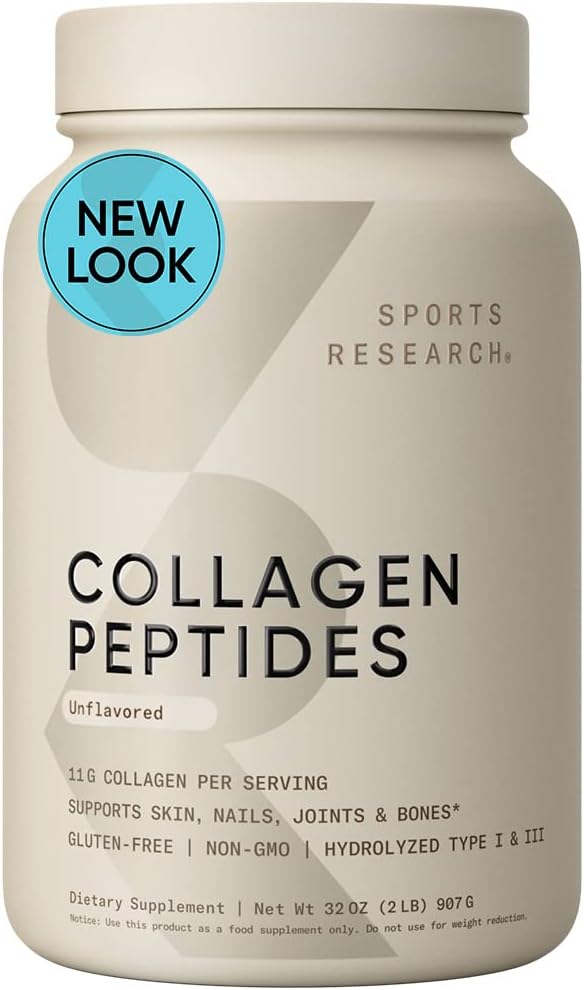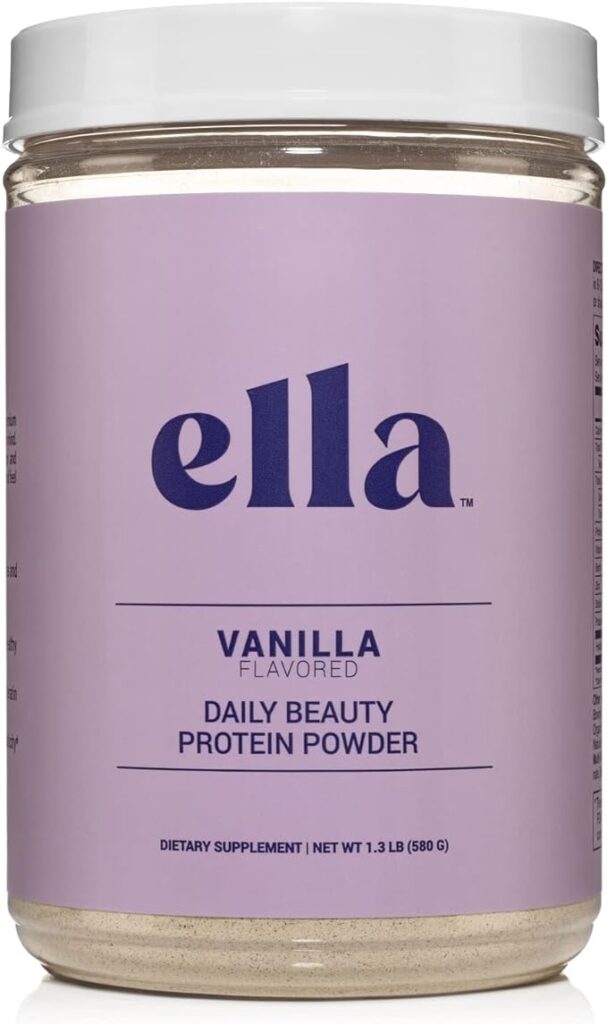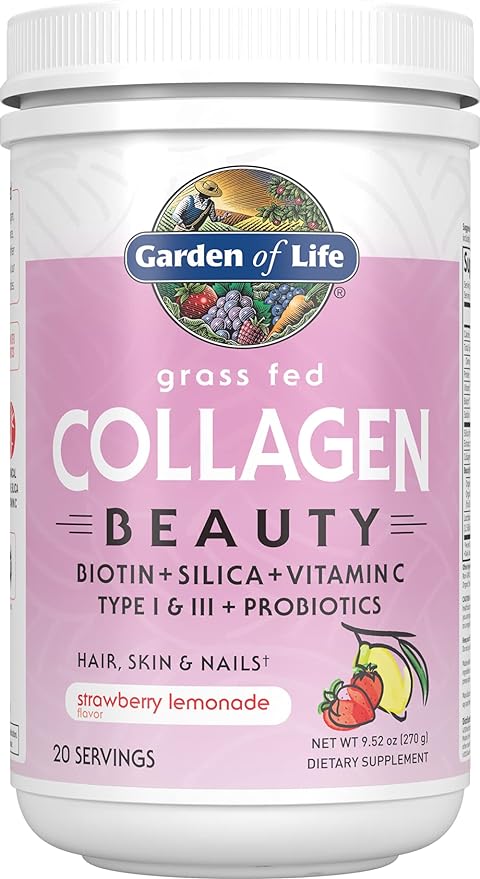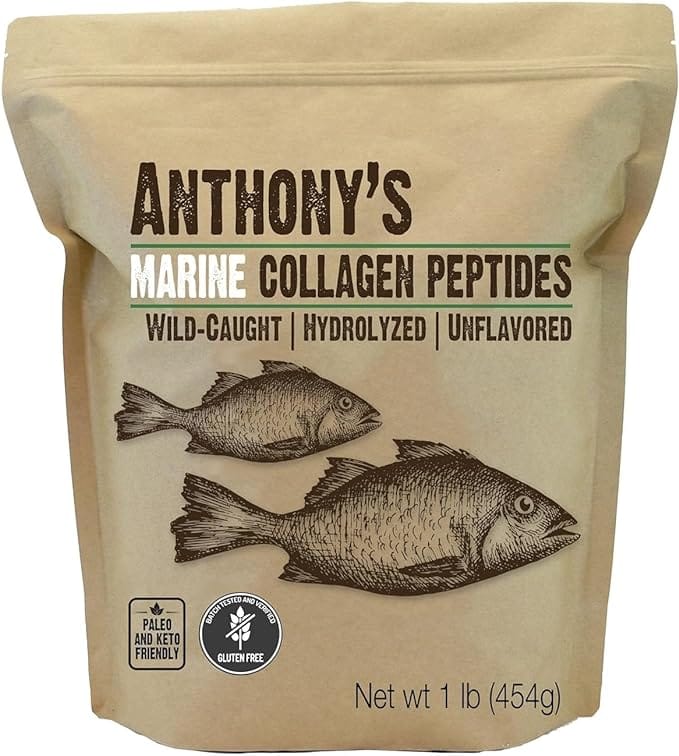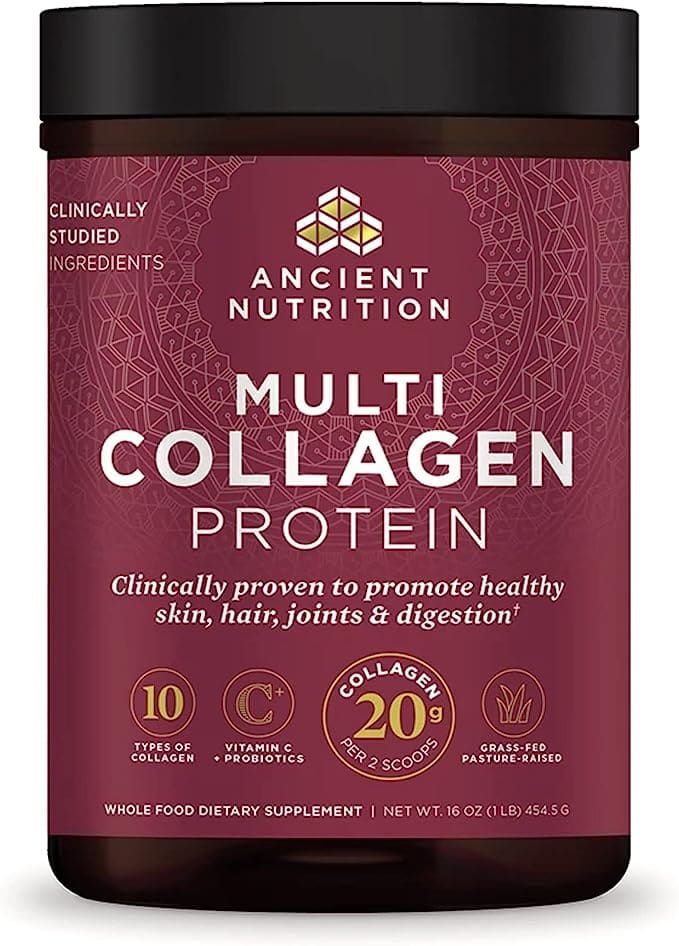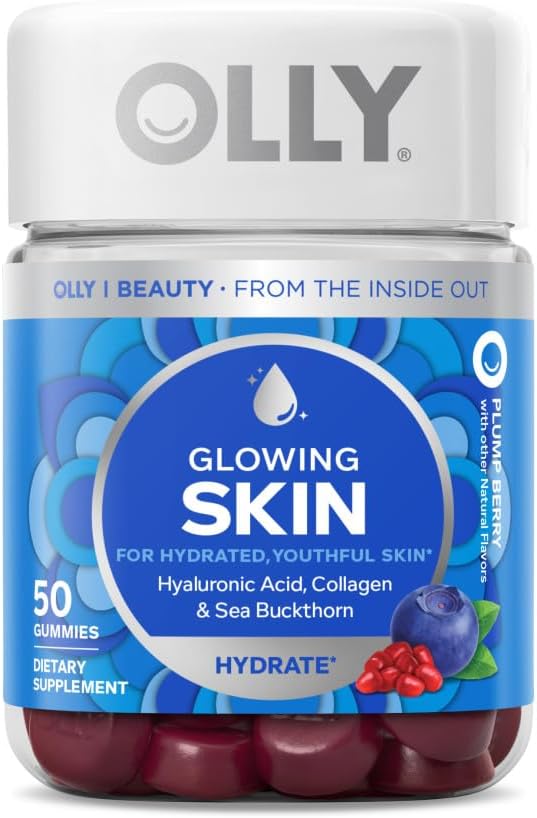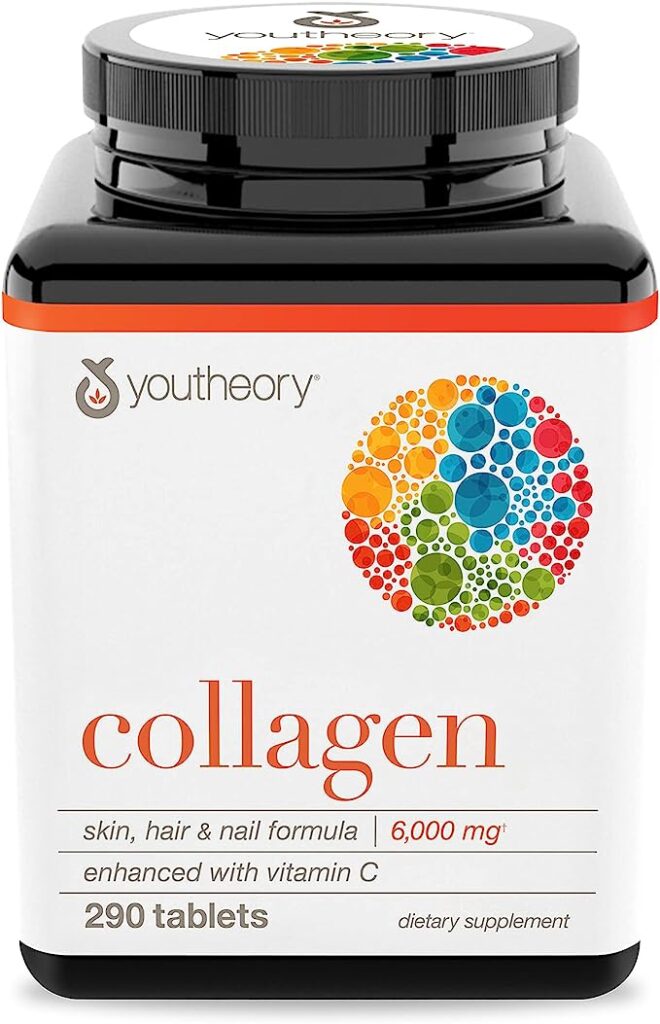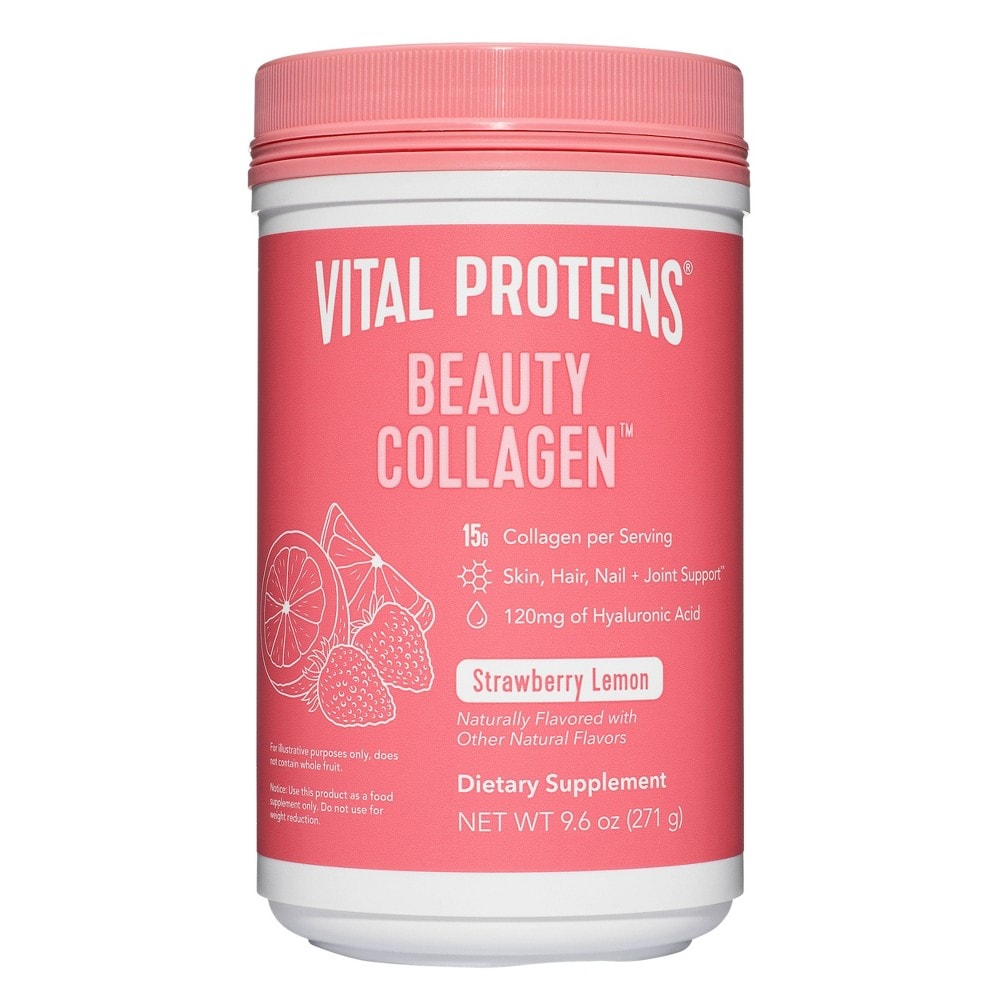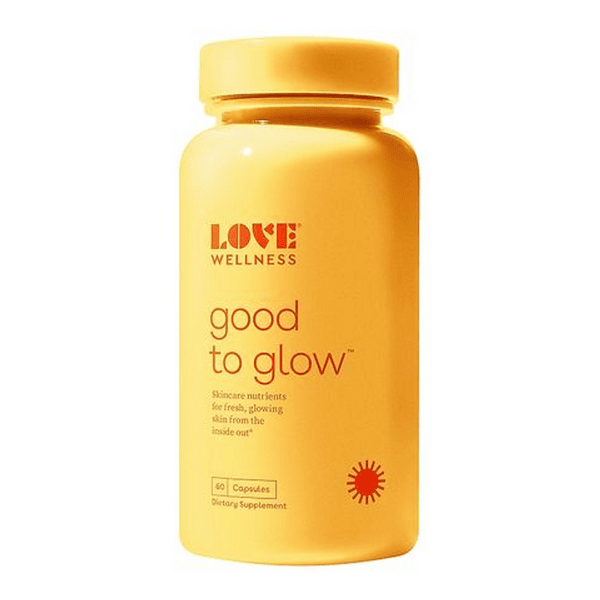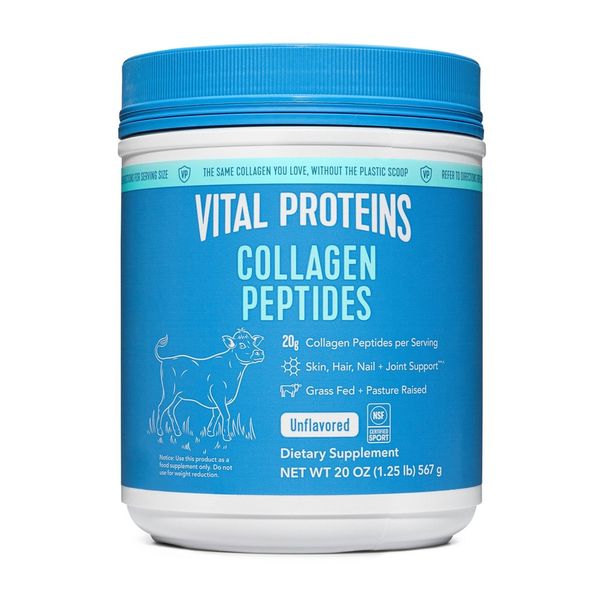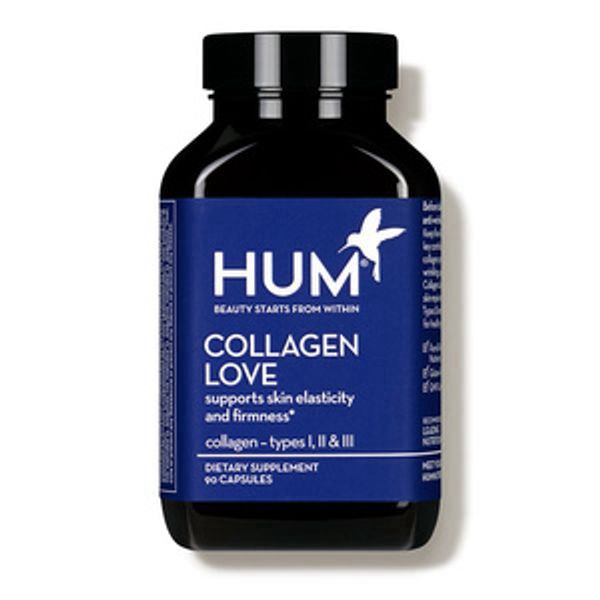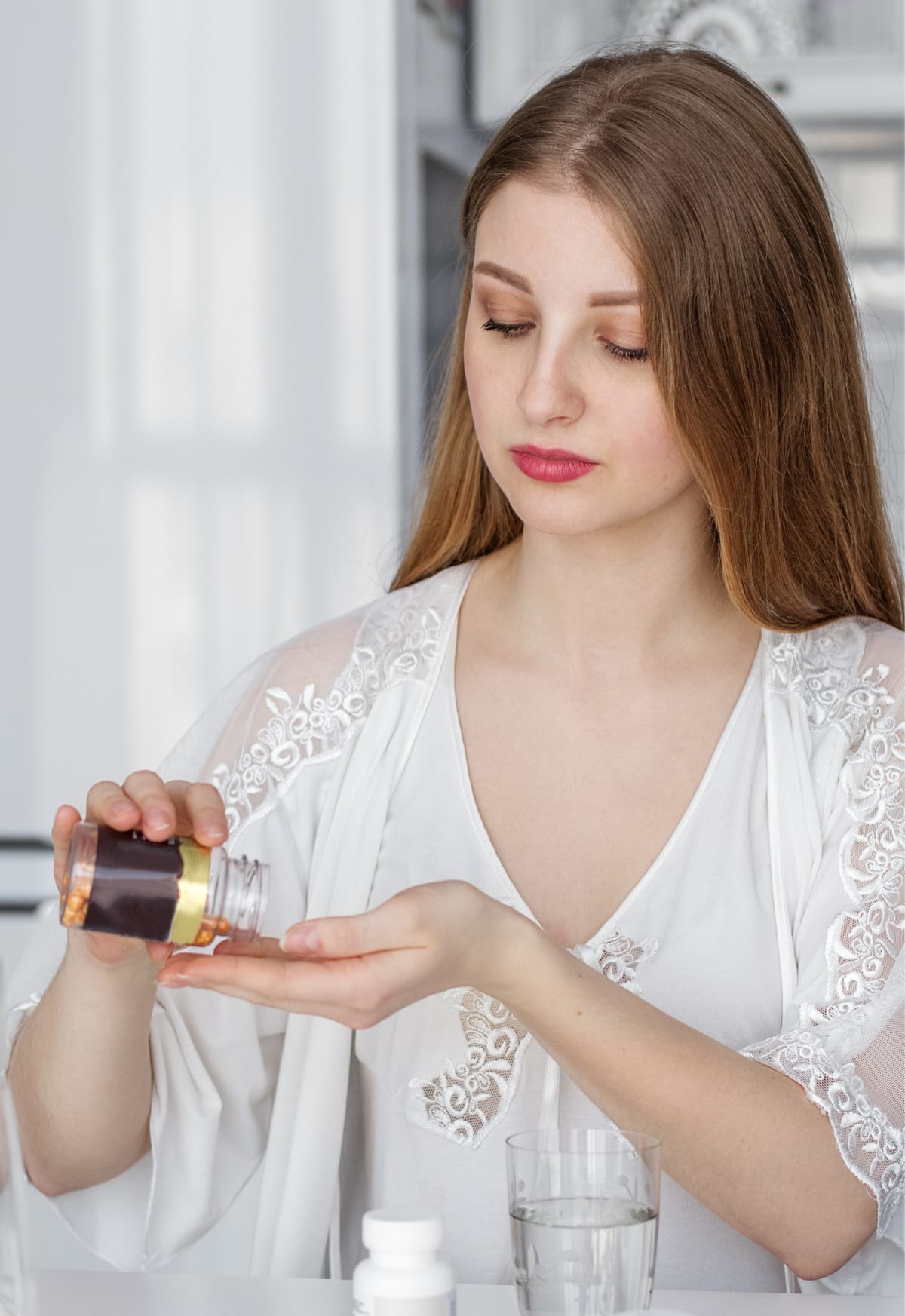
Collagen – the word itself whispers promises of plump, youthful skin, bouncing back from every laugh line and defying gravity with a grin. It’s the protein woven into our very being, holding our bones together, lubricating our joints, and giving our skin that bouncy, baby-faced glow we all chase.
Collagen, a vital protein in the human body, is renowned for its remarkable ability to maintain skin elasticity, smoothness, and youthful glow. As a favorite in the realm of skin health supplements and weight loss strategies, collagen has gained immense popularity. No wonder collagen supplements have become the Holy Grail of anti-aging, promising everything from firmer skin to fatter wallets.
But here’s the thing: lately, all the buzz around collagen is mixed with a few raised eyebrows and… pimples? Yup, you read that right. So before you dive headfirst into the collagen craze, there’s a question burning on everyone’s minds: Can collagen cause acne? Let’s dedicate this post to unravel whether taking or topically applying collagen can cause acne or not.
Can Collagen Cause Acne? The Not-So-Simple Answer
Hold on before you toss out your collagen stash. The truth, like most things in life, isn’t black and white. First things first, collagen itself is unlikely to cause acne.
Think of it as the building blocks of healthy skin, not the pesky bricks clogging your pores. Studies haven’t established a direct link between ingesting collagen and increased acne breakouts.
But, plot twist! The story gets more nuanced when we consider all the players involved. Like any good detective story, understanding the suspects is key. Here are some potential culprits that might be masquerading as your collagen BFF:
The Additional Ingredients Beyond Collagen
Those collagen powders and supplements aren’t just pure collagen. They often come with a guest list of additional additives, sweeteners, and fillers, and not all are skin-friendly. While some are harmless, some might contain specific amino acids that can lead to clogging pores and triggering acne breakouts.
The key is to choose high-quality collagen supplements, keeping an eye out for any unwanted additives. Watch out for:
- Sugars and sweeteners: Sugar spikes your insulin levels, which can trigger excess oil production and clog pores, hello pimples!
- Artificial flavors and colors: These can irritate sensitive skin and worsen acne.
- Comedogenic ingredients: Some oils and thickeners can clog pores, especially for acne-prone skin. Be sure to check those labels like a skincare detective and stick to products labeled “non-comedogenic.” You can also use our pore clogging ingredients checker as a guide.

Allergies and Your Skin
Ever thought about allergies playing a role in acne flare-ups? Ingredients in collagen supplements, especially marine collagen, can be allergenic for some. This can cause skin reactions, including acne, particularly if your digestive system is sensitive to these components.
Even the purest collagen can trigger allergic reactions in some folks. Histamine, the chemical released during an allergic response, can lead to inflammation and acne breakouts.
Research[1] has shown that collagen peptides sourced from marine sources can trigger an allergic response in people who already have a history of fish allergies. This can lead to redness, inflammation, and yes, acne!
Listen to your body, glow-getter. If your skin throws a tantrum after starting collagen, it’s best to say “bye, Felicia” to that supplement.
The Overzealous High Doses
More isn’t always better, especially when it comes to collagen. When it comes to collagen, balance is key. High doses of collagen supplements might disrupt your body’s natural collagen production and balance, potentially leading to acne. It’s important to follow recommended dosages and listen to your body’s signals.
Research[2] shows that the human body has a daily collagen absorption limit of 5,000 milligrams (mg). Therefore, your body will react strongly, and acne will develop if you supplement with collagen in amounts higher than the stated threshold.
Excess collagen that the body is unable to eliminate in a timely manner will result in acne since, as a protein, collagen still needs time to separate and absorb gradually. You may want to also prioritize whole food sources of collagen (hello, bone broth, and salmon!) for a balanced approach.
The Contamination Mayhem
Sadly, some collagen supplements can be contaminated with heavy metals like lead or mercury. These toxins wreak havoc on your system, causing inflammation and, yep, you know the drill – acne breakouts. Opt for high-quality brands with third-party lab testing to avoid this nasty scenario.
The Lifestyle Factor
Stress, diet, sleep, and other lifestyle factors play a major role in your skin’s health. If you’re breaking out, consider the big picture before pointing the finger at collagen. Are you getting enough sleep? Eating a balanced diet? Managing stress? All these factors can contribute to acne, so don’t solely blame the collagen in your cup.
Best Collagen For Acne Prone Skin
For those with acne-prone skin, inflammation and bacteria are key concerns. Hydrolyzed collagen, with its smaller peptides, is easier for the body to absorb. This could potentially aid in repairing and soothing the skin, thus reducing the occurrence of acne scars.
When looking at collagen supplements, opt for ones that include ingredients known for battling acne, such as vitamins and minerals that can help in managing excess oil and dead skin cells.
Before I recommend my personal favorite collagen products (dietary supplements and skincare products), I want to give you a quick overview of two different types of collagen that will be mentioned:
| Collagen Type | Unique Features | Role in Tissues | Aging Effects | Additional Information |
|---|---|---|---|---|
| Type I | Prevalent type (85% cardiac collagen, 90% overall body collagen) | Tissue injury, regeneration, wound healing | Sagging skin, fine lines, brittle nails | Primary collagen in the body |
| Type III | Singular alpha chain | Tissue injury, regeneration, wound healing | Similar aging effects as Type I | Second most common type |
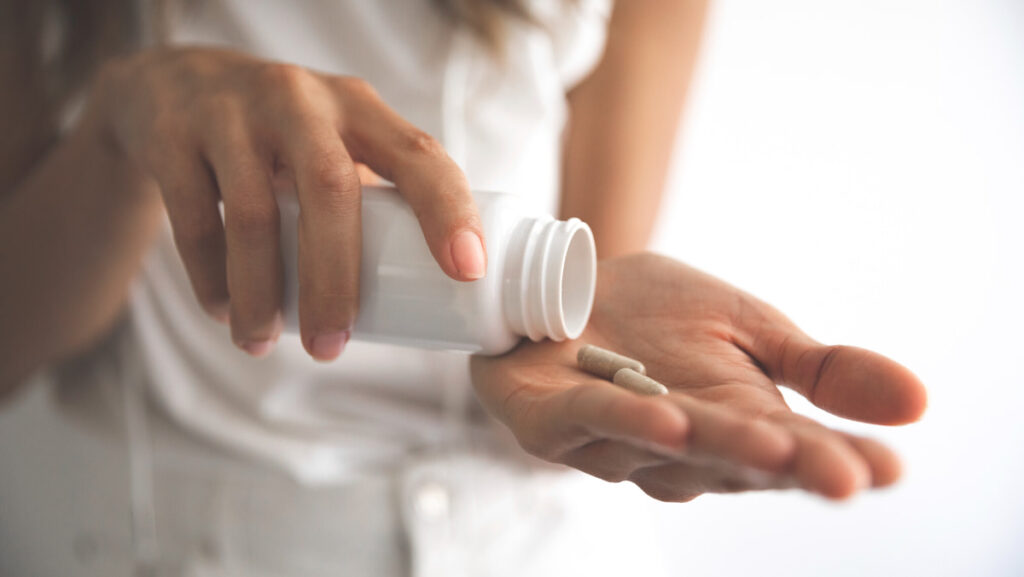
Vital Proteins Collagen Peptides
Vital Proteins Collagen Peptides provide a high dose of collagen types I and III. What makes it stand out for your acne-prone skin is that it’s sourced from grass-fed, pasture-raised bovine and contains no additional sugars or sweeteners. Take one to two scoops in the morning with your breakfast or coffee.
Hum Nutrition Collagen Love Skin Firming Supplement
Hum Nutrition Collagen Love contains types I and III hydrolyzed collagen, along with vitamin C and hyaluronic acid—key ingredients for skin repair and hydration. This blend is excellent in promoting skin elasticity. The best time to take it is with food to enhance absorption.
Olly Glowing Skin Gummy
Olly Glowing Skin Gummy makes taking your collagen enjoyable with a tasty gummy format. It includes marine collagen, hyaluronic acid, and sea buckthorn. These gummies could support your skin’s hydration and clarity. Chew two gummies daily at any time as part of your routine.
Ella Beauty Collagen Protein Powder
Ella Beauty Collagen Protein Powder (vanilla and chocolate flavors, chocolate is my fave!) focuses on marine collagen, which may be better absorbed by your skin. Additionally, antioxidants from several berry extracts complement the collagen. Mix it with your morning smoothie or juice for an easy beauty boost.
Ancient Nutrition Multi Collagen Protein
Ancient Nutrition Multi Collagen Protein formula combines several types of collagen from different sources, which works well for supporting various aspects of skin health. The Multi Collagen Protein also includes probiotics for gut health, which is linked to clear skin. Have one scoop twice daily, either in the AM or PM.
Youtheory Collagen With Vitamin C
The Youtheory Collagen With Vitamin C helps in skin repair and may enhance your skin’s texture. This combination is particularly powerful since vitamin C aids in collagen synthesis. Take six tablets a day, ideally split between two meals.
Garden Of Life Grass-Fed Collagen Beauty
Garden Of Life Grass-Fed Collagen Beauty is a high-quality powder containing collagen types I and III, plus biotin, silica, and vitamin C. This combination is tailored for a glowing complexion. Mix it with your water or tea first thing in the morning.
Sports Research Collagen Peptides
Sports Research Collagen Peptides also boast hydrolyzed types I and III collagen from bovine. This unflavored powder is versatile and can be a good addition to both your morning or evening routine, mixing well with your preferred beverage.
Vital Proteins Beauty Collagen
Vital Proteins Beauty Collagen comes as a flavored option with added hyaluronic acid and probiotics. It’s a delight in your afternoon snack routine, improving hydration and skin condition. Stir it into cold water or blend into a smoothie.
Anthony’s Hydrolyzed Marine Collagen Peptides
Designed for easy absorption, Anthony’s Hydrolyzed Marine Collagen Peptides are especially good for skin health and are friendly for your acne-prone skin. It blends seamlessly into hot or cold beverages, tailored for consumption at any time of day.
Love Wellness Good To Glow Collagen Capsules
Love Wellness Good To Glow Collagen Capsules offer chocked-full with types I and III collagen, plus skin-loving vitamins and minerals. You’ll want to take two capsules in the morning, giving your skin a daily foundational support.
Best Collagen Skincare For Acne Prone Skin
When looking for collagen-rich skincare products tailored for acne-prone skin, it’s crucial to find formulas that balance collagen support with ingredients that manage breakouts without causing irritation. Here’s a curated selection of products that fit the bill.
Skinfix Barrier+ Triple Lipid + Collagen Activating Serum
Skinfix Barrier+ Triple Lipid + Collagen Activating Serum is designed to strengthen your skin’s barrier with lipids that mimic those found naturally in your skin. With collagen-activating peptides and a lipid complex, it supports skin firmness while being gentle on acne-prone skin. Apply in the morning or at night, but be mindful that if you have very oily skin, using it once a day may be sufficient.
Paula’s Choice Pro-Collagen Multi-Peptide Booster
This Paula’s Choice Pro-Collagen Multi-Peptide Booster combines peptides with amino acids to promote collagen production. It is loaded with skin-repairing ingredients and can be used both in the morning and evening. For acne-prone skin, it’s non-comedogenic, so it won’t clog pores, a critical factor to consider before incorporating it into your routine.
Murad Rapid Collagen Infusion
The Murad Rapid Collagen Infusion contains collagen-supporting ingredients that help reduce the appearance of fine lines and wrinkles. It also includes hydrating ingredients suitable for acne-prone skin. Use it once or twice daily, and remember to follow up with sunscreen during the day, as some ingredients may increase sun sensitivity.
The Inkey List Collagen Peptide Serum
Collagen peptides in The Inkey List Collagen Peptide Serum aim to boost your skin’s natural collagen production. Since it’s lightweight, it’s excellent for acne-prone skin that may shy away from heavier products. Consider using it in your nighttime routine to allow the serum to work its magic overnight.
Peter Thomas Roth Firmx Collagen Serum
Peter Thomas Roth Firmx Collagen Serum is concentrated with marine collagen, plant collagen, and hydrolyzed collagen. It’s packed with collagen and a mixture of hydrating ingredients, which makes it a powerhouse for your skin. Apply it with care, as the formulation is rich—ideal for nighttime use.
First Aid Beauty Ultra Repair Collagen Cream
First Aid Beauty Ultra Repair Collagen Cream is formulated with collagen and peptides that support the skin’s natural collagen, combined with Colloidal Oatmeal to help soothe acne-prone skin. Apply this cream morning or night, after serums, but before sunscreen in the daytime.
Drunk Elephant Protini Polypeptide Cream
The Protini Polypeptide Cream by Drunk Elephant is like a protein shake for your skin, containing signal peptides, growth factors, and amino acids mixed with collagen. It’s well-suited for both morning and night application and complements an acne skin care regimen by being non-comedogenic and lightweight.
The Verdict: Embrace Collagen Wisely, Glow From Within
So, does collagen cause acne? Not directly, but there are definitely factors to consider before diving headfirst into a collagen craze. Here’s the deal:
- Choose high-quality collagen: Opt for reputable brands, look for non-comedogenic formulas, and avoid unnecessary additives.
- Start low and go slow: Introduce collagen gradually and increase the dosage slowly to see how your body reacts. Numerous scientific investigations have shown that the optimal dosage of collagen to maximize its benefits is between 1000 and 2000 mg. Specifically, taking 3000 mg of collagen daily—no more than 5000 mg—is beneficial for bones, hair, nails, and skin.
- Listen to your body: If you experience any negative side effects, stop taking the collagen and consult a dermatologist.
- Holistic approach: Remember, skin health is a team effort. Combine collagen with a healthy diet, drinking enough water, good sleep hygiene, and stress management for optimal results.
If you’re already experiencing acne, focus on addressing the underlying causes before reaching for supplements. Check out this post on “Is hyaluronic acid good for acne?” – another amazing skin hydrator that might better fit your current needs.
And, of course, if you’re curious about how collagen works magic on your skin in the first place, this “What does collagen for the skin” post is your ultimate guide.

